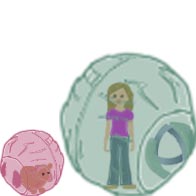The purpose of NHV is to expose us, as engineers, to the greatness of invention while also making us consider the ethical implications behind our creations through the use of history. One topic that is covered, memorable to those who have taken NHV, is the Holocaust.
After talking to several students who have already taken NHV and a couple who recently went to lecture, I found that all these students noted one thing about this specific lecture: its explicitness regarding the effectiveness of machinery used.
Although a historian’s role is to hypothesise and theorise events, many students seem to remember the explicit detail that the lecture seemed to be based on. Deeply disturbed by the lecture – which yes, did mean lots of crying, even two days later – I questioned if I was being too sensitive.
After interviewing a student currently in the class, I felt reassured that I was not the only one who was deeply affected by the lecture. She revealed that, “I felt really uncomfortable because as a Jewish student, it was really upsetting to hear explicit details about how the death camps operated.”
She continued, “And at first, I was really excited that our school covered this topic and was willing to talk about the darker parts of engineering history, but instead of focusing on the evil that was behind it, they focused on the sheer numbers of mass murder. And I was not, personally, a big fan of hearing exactly how many bodies they were able to burn every day or the exact process they used for killing off my people.”
Clearly affected by the way this topic was presented, it was asked what the professors could do differently when covering this topic to make it more sensitive. “I would say, instead of focusing on the numbers, focus on how they [the engineers] were pushed to develop ovens for greater capacity and more effective chemicals.”
We both agreed that we would not want this part of history to be forgotten and that, “It’s not about glossing over the history, and it will always, probably, be an emotional topic for Jewish students, but we don’t need to hear this intense level of detail to get the point of the morality of it.”
It is important for professors to consider who might be in their class when discussing topics such as the Holocaust. Remembering that certain issues provoke different emotions in different people continues to be an essential aspect of teaching.
Specifically, in NHV, a class that may itself be used to learn about historical events through the eyes of an engineer, I find that conveying compassion is crucial to break down a historical event into its components. Showing empathy when speaking about horrific events in history helps us understand those events; otherwise, history is empty and meaningless.
On the other hand, our professor stated that explicit detail is crucial to history and shouldn’t be forgotten. Although this may not be true for me and some of my peers, others can gain more knowledge from a logical than empathetic exposure.
Emotional knowledge is crucial to understanding each other since otherwise we would have no clue if anyone else understood us or had the slightest sense of how we ourselves feel. From this experience, I was reminded to be thoughtful of the feelings of those around me, especially, when speaking about gruesome history.




'Perspectives on NHV and Nazi Engineers' has no comments
Be the first to comment this post!